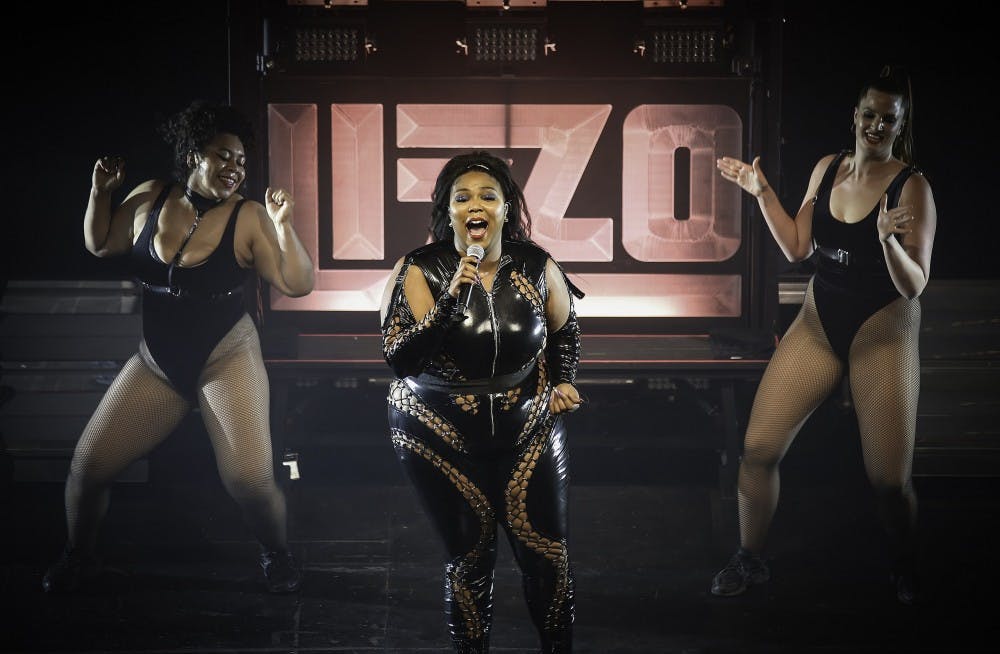“Cuz I Love You,” which dropped April 19, is the third studio album — and first with a major record label — from songstress and flautist Lizzo.The force of a major label shows as Atlantic Records paired her with a number of hitmakers, namely Oak and Ricky Reed. Despite these pairings, the album is a somewhat underwhelming effort. While there are a few shining moments, the lack of lyricism and distracting production overpower the positive elements.
Lizzo rose to fame for her unapologetically bold lyrics, genre-bending music and embrace of her size in an industry obsessed with body image. Since the inception of her career, she has challenged the dichotomy facing plus-sized women of color — where society inherently sexualizes her as a black woman while simultaneously telling her she is not attractive as a big woman. Along with other artists such as Missy Elliot and Cupcakke, she embraces her sexuality and blackness. She does not allow society to confine her to its molds, and this shows in her music.
On “Cuz I Love You” Lizzo continues to defy expectations with her genre-bending. The sounds of the album range from rock to rap, trap, funk and dance. In an industry which tries so hard to confine black women to genres like R&B, Soul and Jazz, it is refreshing to see Lizzo tackle so many. Nonetheless, she falls short in her efforts. The lyricism on the LP is underdeveloped, and the production detracts from her voice.
While there are lyrical stand outs on the album, overall the tracks rely too heavily on trendy slang. Using words like “snack,” “dickmatized” and “Gucci” immediately gives the songs replay value and will help them become popular with the general public. This shows as the lead single, “Juice,” was the first commercial hit for the singer entering the R&B charts. However, the use of slang also dates the songs. To stand the test of time, it is important that new audiences can discover the body of work and find it relatable.
Production wise, the tracks are too busy. Lizzo reveals her true powerhouse vocals on “Cuz I Love You.” She previously told Entertainment Weekly, “That’s how we were tokenized — the big black girls were always the belters, and I’ve always been afraid of being put into that box.” But that’s not the case anymore, she explained, saying, “But you know what? I’m a big, fat black girl that can sing, and I can rap, and I can dance.”
Unfortunately, the loud production of the album distracts from her singing, which is evidenced on the track “Like a Girl.” Between the production, ad-libs and background vocals, the powerful belting Lizzo lets loose on the track is drowned out.
Ironically, “Like a Girl” is one of the standout songs on the album. Production aside, the song preaches a message of female empowerment. The song is particularly powerful considering the number of women’s rights movements which rely on messages such as “p—sy power” and “my p—sy bites back.” “Like a Girl” recognizes the idea of womanhood consisting of more than just biology with the lines, “Only exes that I care about are in my f—ing chromosomes” and “If you feel like a girl, then you real like a girl.”
The other standout track on the album is “Tempo” featuring Missy Elliott. The song is a certified, club-ready banger. The song preaches a message of body positivity with lines like “All the thick girls down on the flrrr (On the floor)” and “I'm big-boned with nice curves (Nice curves).” The song begins with a guitar riff which calls to mind Janet Jackson’s 1993 track “If” and is followed by a beat drop. With catchy lyrics, an infectious beat and a verse from a rap legend, it has all the makings of a moderate chart hit.
Lizzo is an artist audiences can root for. In the cancel culture of Hollywood, she maintains the perfect politics for an up-and-coming celebrity — she is body positive, supports the rights of women and is LGBTQ-friendly, among other things. Still, the music on her first major label album feels flat. But being relatively new to the industry, there is ample time for Lizzo to grow into her artistry.







